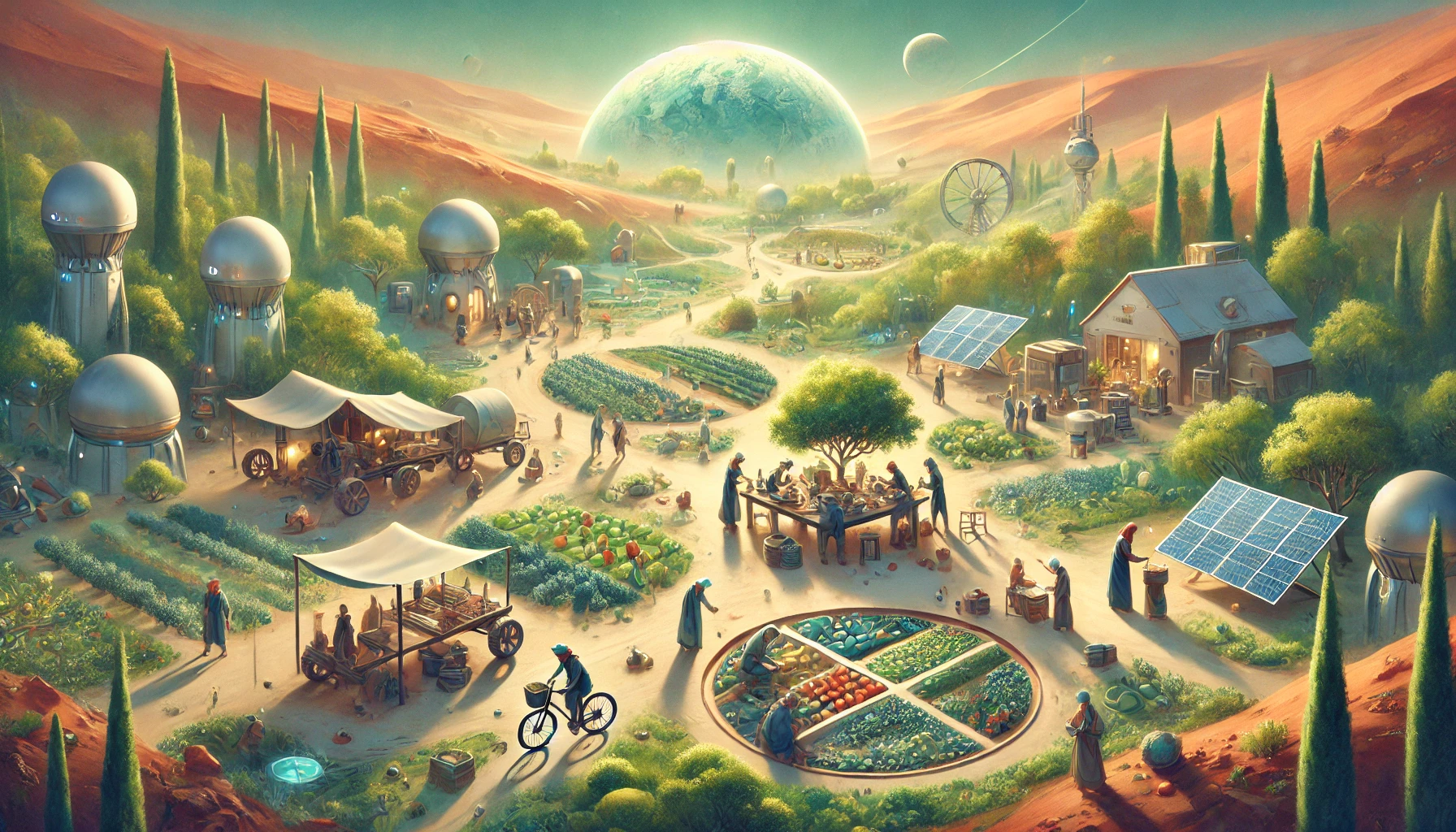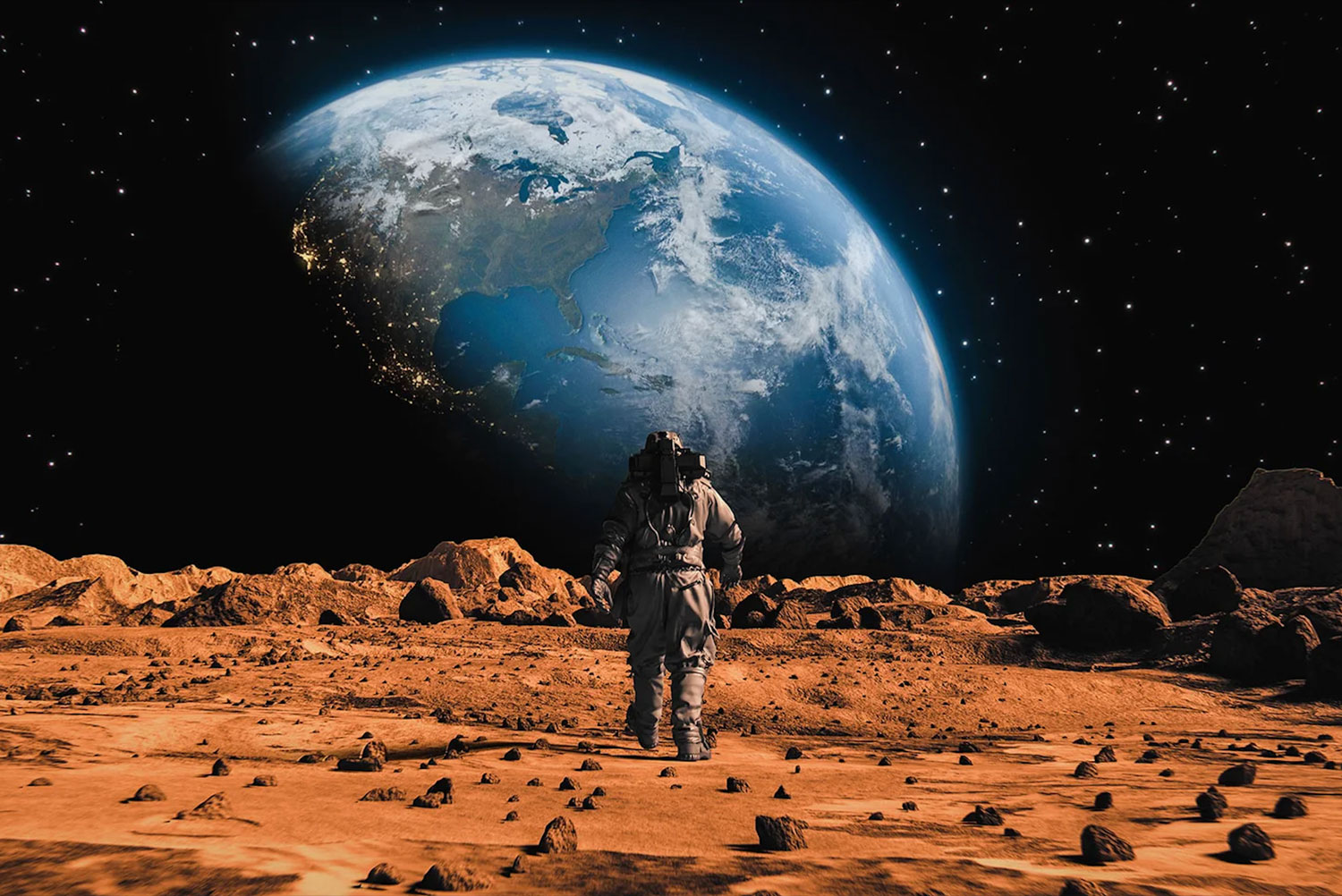CHAPTER VI — Trade and Barter are Unknown
byCHAPTER VI — Trade and Barter are Unknown in Martian society, the concepts of trade and barter are non-existent. Instead, Martians follow a model of collective cooperation, where the production and distribution of goods serve the needs of the entire community rather than benefiting individual profit. This system allows for a more harmonious and equitable distribution of resources, where necessities such as food, clothing, and other essential items are provided based on the community’s collective needs, not the financial standing of individuals. In this way, every Martian contributes to the society in a way that ensures the well-being of all its members, creating a balanced and just existence where the pressures of greed and competition, often seen on Earth, are absent. By focusing on mutual well-being, Martians live in a society free from the inequalities and tensions caused by profit-driven economic models, where every individual plays a part in sustaining the greater whole.
The organizational structure of Martian industries encourages specialization but without the competitive drive that defines Earth’s economic systems. The climate and geographical conditions of Mars dictate what each region produces, from raw materials to foodstuffs, allowing for the efficient and practical use of resources based on the environment. The crucial difference between Earth and Mars, however, is that the motivation behind this specialization is not material wealth but the spiritual connection with the greater good, or what Martians call the “Father’s will.” This spiritual fulfillment ensures that the Martian economy operates not for individual gain, but for the betterment of all, fostering a cooperative environment where the focus is on what each individual can offer to the collective community rather than on what they can acquire. The focus on spiritual alignment over material wealth is a fundamental distinction between Martian society and Earth’s, where the pursuit of riches often leads to societal division and strife.
Transportation on Mars is an impressive feat of advanced technology, vastly superior to anything on Earth. Martians utilize flying ships powered by principles that manipulate gravitational forces, allowing for effortless and limitless travel across the planet. These ships, and the goods they carry, are not constrained by gravity, unlike Earth’s transportation systems, which depend on traditional vehicles and infrastructure. The use of Cosmic or Universal Energy as the primary source of propulsion hints at an understanding of energy that Earth has yet to explore. This form of transportation is crucial to the Martian society’s cooperative system, enabling the smooth and rapid distribution of goods throughout the planet. Unlike Earth’s reliance on fossil fuels and environmentally harmful methods, Mars has evolved an efficient, environmentally friendly system that reflects their understanding of energy’s deeper, cosmic origins.
The infrastructure on Mars is another critical aspect of their society. Vast warehouses and depots are spread across the planet to store the goods produced by their industries, ensuring that resources are available wherever needed. These centers of distribution are managed by skilled workers who maintain the supply chain, ensuring that every Martian has access to the items they need. The process is seamless and efficient, with no need for currency or trade, as everything is allocated based on the needs of the community rather than on individual wealth or bartering. Martians can walk into any distribution center and receive the items they require without delay, showcasing the practicality and success of a system that works on cooperation and shared responsibility. This contrasts starkly with Earth’s system, where trade and money are the driving forces behind distribution, often leading to inequality and waste.
The Martian economic and social systems offer a stark contrast to Earth’s. By placing the collective good above individual wealth and embracing a model of cooperation, Mars has created a society where every individual’s needs are met, and no one is left behind. Their focus on spiritual alignment, respect for the environment, and technological advancement offers a glimpse into a future where Earth might evolve towards greater equality and communal harmony. Mars presents an ideal where economic systems are integrated with spiritual principles, allowing for a civilization where everyone works together towards a common goal of peace and prosperity. This society functions without the need for competition or greed, showing a possible path forward for humanity to embrace a more connected, compassionate, and sustainable future.


